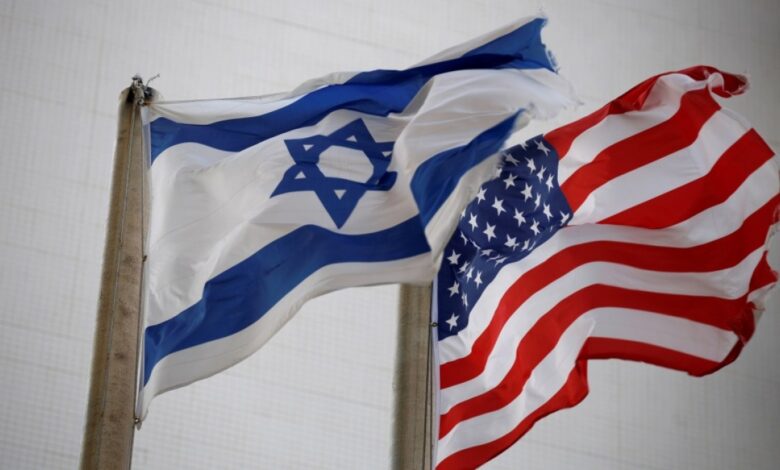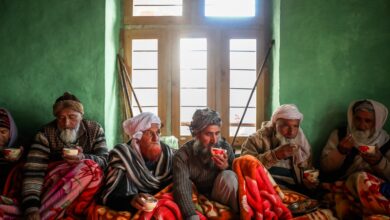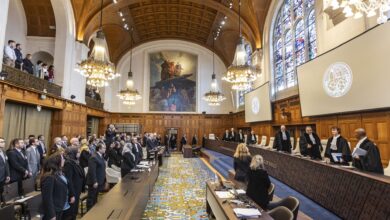Christian Zionist cowboys: American and Israeli affinities laid bare

In early November, a photograph of four white men in cowboy hats at JFK airport was uploaded to social media with the caption, “These cowboys from Arkansas and Montana were at JFK today on their way to help out at the farms in Israel. They are not Jewish.” By the time the cowboys landed in Tel Aviv, a Jerusalem Post commentator declared, “they were already a social media sensation”.
Indeed, since then they have netted thousands of likes and comments such as “God bless Israel! I will always stand with her” and “The Jewish people are so grateful to have friends.” Israeli and American media outlets have also celebrated the cowboys through interviews and updates about their work and time in Har Bracha, a Jewish settlement in “Judea and Samaria” – the term for the West Bank used by those who believe the land belongs to the Jewish people.
Yet the cowboys are also a conduit to understanding a fundamental likeness between white American and Jewish Israeli society, namely their settler projects intent on the erasure of dehumanised “natives”.
The men volunteer through the Christian Zionist organisation HaYovel, or “The Jubilee”; according to the organisation’s website, this biblical term “looks forward to a day of worldwide redemption and a fully restored land of Israel.” As Christian Zionists, the cowboys and their sponsors believe that four millennia ago, God promised the land to the Jewish people, who will rule it until the rapture and, ultimately, the second coming of Christ. In this scenario, Christians will be saved and ascend to heaven while those adhering to other religions will be sent to hell.
While not all evangelical Christians in the United States (approximately a quarter of the population) hold these Christian Zionist convictions, polls show that a large majority believe that the modern state of Israel and the gathering of millions of Jewish people there are “fulfillments of Bible prophecy that show we are getting closer to the return of Jesus Christ”. Many Christian Zionists also believe in the “prosperity gospel,” which contends that blessing Israel results in personal and financial gain. These tenets compel Christian Zionists to support Israel’s settlements and other expansionist policies through donations, lobbying, and, as in the case of the cowboys, labour.
For two decades, HaYovel has brought hundreds of volunteers each year to work in settlement agriculture. With many foreign workers fleeing since Hamas’s attack on October 7 as well as Palestinians barred from working in settlements and Jewish Israelis called up for military duty, more Christian Zionists like the cowboys are filling in. As one American worker told Israeli channel i24, “I can’t go into Gaza and fight, so I’m gonna help here on the farm.” The Christian volunteers also speak of themselves as “boots on the ground” during Israel’s time of need, invoking their labour as a military operation.
This white, militaristic masculinity common among evangelicals was examined by scholar Kristin Du Mez in her 2020 book, Jesus and John Wayne. Du Mez explores 75 years of white evangelical history in the United States, tracing how evangelicals have replaced Jesus with an “idol of rugged masculinity and Christian nationalism,” including through such pop culture figures as Mel Gibson and John Wayne as well as politicians like George W Bush and Donald Trump, all of whom “assert white masculine power” and embody the evangelical values of patriarchy, authoritarian rule, belligerent foreign policy and fear of Islam.
While Du Mez’s study doesn’t focus on Christian Zionism, she has noted the evangelical practice of supporting Israel. “[It’s a] kind of slippage into America as a new Israel,” she said in a 2021 interview. Here Du Mez ostensibly refers to the idea of early American colonists escaping religious persecution in England as the new Jews and America the new Israel, promised to the settlers by God.
This conflation of America and Israel as God-instructed colonialism – one that depends on the replacement of savage natives with righteous settlers – is revealed in the Christian Zionist cowboys’ rhetoric. Media interviews with Montanan John Plocher in particular highlight the trope of good cowboys versus bad Indians and the dehumanisation of natives – tropes transposable on to Israeli Jews and Palestinians.
In a December conversation with Israel Now News, Plocher was asked why he thinks the Jewish population in Israel is so excited about him and his fellow cowboys. “They’ve said that seeing the cowboys is like seeing the good guys,” Plocher responded. “You think of all the Westerns and John Wayne and all these people who stand up for the right thing and so it’s just an encouragement to them.”
Despite the fact that American settlers murdered and terrorised Indigenous women, children, and other unarmed Native civilians and took the land for themselves, the narrative of good white cowboys versus bad Indians has appeared time and again in US popular culture. Scholar Michael Yellow Bird has examined this narrative “as part of the colonial cannon asserting white supremacy and Indigenous inferiority” and relates how in Western movies and television, “Not only did we spectacularly lose, but … we were also presented as screaming, grunting, unreasonable savages.”
Though Zionists and Christian Zionists may declare that Jews are Indigenous to the land, it is Palestinians – made Indigenous through Israel’s process of settler colonialism – who are often depicted as barbaric and backward, as “beasts walking on two legs,” “little snakes,” and “human animals.” Similarly, in a November interview with Israel National News, Plocher compared Hamas and Palestinians more broadly with grizzly bears and declared the need for the land to be rid of them. He recounted that grizzlies are a problem in Montana and that the “original people” who came to Montana (meaning white settlers) eliminated them. The problem now, he continued, is that people want the grizzlies “everywhere”. “Let us do what we need to do to defend ourselves,” he said, meaning kill the grizzlies. “It’s the same with you guys, it’s Hamas … We understand you guys have to go after that and eradicate that.”
As Israel commits genocide in the Gaza Strip with the support of the United States and as Israeli killings of Palestinians in the West Bank and East Jerusalem increase and settler violence against Palestinians in the West Bank becomes more commonplace and brutal, the obvious parallels between Israeli and American settler colonialism, white supremacy, and aggressive militarism must compel us to counter these tropes and trends. Let the affinities between the two states impel more and more of us to challenge the parallel systems of violence and domination and, as Yellow Bird has argued, “seek justice on behalf of those colonized”.
The views expressed in this article are the author’s own and do not necessarily reflect Al Jazeera’s editorial stance.



